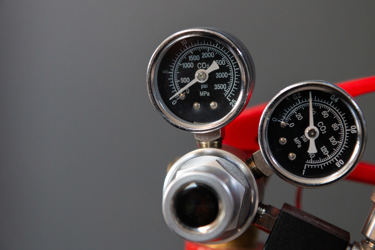Coronavirus Cuts CO2 Supply For Water Treatment Plants


In the face of the unprecedented coronavirus pandemic, drinking water and wastewater treatment operations have had to overcome many obstacles. Employees have had to live at work, an industry association has deep cleaned a facility, and at least one wastewater plant has been forced to dump thousands of gallons of beer.
Now, a new obstacle has emerged that could challenge treatment operations around the world: a shortage of carbon dioxide gas (CO2).
According to an emergency planning document from Washington State’s office of drinking water (ODW), there is a national shortage of CO2, which is used in several crucial treatment practices, including to lower pH levels.
“Several [water plants] had received initial notification from their vendors that their supply would be restricted to 33% of normal,” the document reported, according to The Guardian.
Highlighting the problem, ODW director Mike Means said in a follow-up interview that, upon further research, he concluded that this is a national issue.
The CO2 shortage stems from a long chain of global and national developments. Essentially, a downturn in ethanol production caused by a Trump administration exemption on gasoline manufacturers from using it and an influx of cheap gasoline from Russia and Saudi Arabia led to an oversupply of ethanol, The Guardian reported. This led ethanol manufacturers, many of whom produce CO2 as a byproduct, to cut back on production. Now, the rise of COVID-19 has made it even less profitable to produce ethanol, and facilities that once did so are unable to supply the resulting CO2 to water treatment plants.
“Preliminary data show that production of CO2 has decreased by approximately 20%, and experts predict that CO2 production may be reduced by 50% by mid-April,” the Compressed Gas Association warned recently in an open letter to Vice President Mike Pence.
For now, it appears the CO2 shortage has not yet caused a serious national impediment to drinking water treatment operations. But if the trend continues, more utilities may have to find new ways of sourcing it.
A local partnership in Iowa, for instance, could provide a model for other facilities that might find themselves faced with similar shortages.
“Producing ethanol … yields carbon dioxide as a byproduct, and that’s where Iowa’s water utilities come in,” according to the Ames Tribune. “Some buy that CO2 to treat their water, and with ethanol plants no longer operating, they faced short supplies of the important gas. …Luckily, Ames didn’t end up having to face the … reality of life without CO2. In Nevada, Lincolnway Energy, alerted to the problem, decided to reactivate its plant and resume producing ethanol — and CO2, a byproduct.”
To learn more about how drinking water utilities maintain their supply chains, visit Water Online’s Asset Management Solutions Center.
